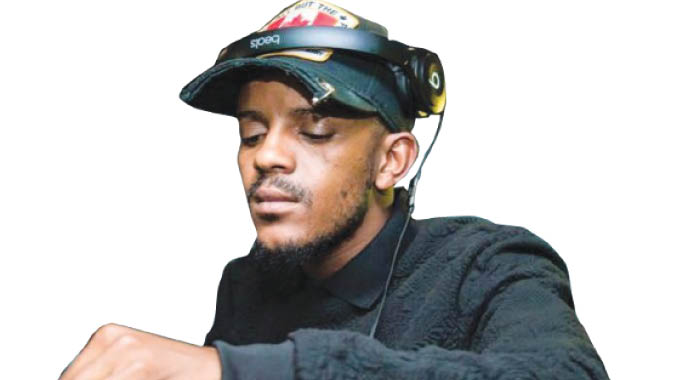
The Sunday News

Bruce Ndlovu, Sunday Life Reporter
AT some point during last weekend’s heavily attended AmaPiano Party at Club Cosmopolitan, one could have been forgiven if they asked where the actual party was.
While a local DJ was warming up the decks inside the club for the main act with some deep house tunes, a Golf Citi parked a few metres from the joint’s entrance was providing the sound that the hundreds who attended that gig had come for.
Out of a sound system that seemed to rival the one assembled at high cost by organisers of the gig, the owner of the car had seemingly decided to host a party within a party.
With doors wide open, young revellers twisted this way and that, some juggling bottles of alcohol in their hands. The bottles, tossed around at what seemed like reckless abandon, never seemed to escape their grasp, with the juggling act done in the background of loud whistles and screams.
It was an impressive display and throughout Club Cosmopolitan’s car park such small parties caught fire.
It was a spectacle to behold and with the cheapest ticket for the gig costing a stiff 100 rand, some would have been left scratching their heads as they wondered where all that money had come from when belts are tightening all across the country.
The house music disciples that gathered to attend what was arguably Bulawayo’s most well attended live show of the year so far had come to see Kabza De Small, the man who has become the Pope of Amapiano, a sub-genre that is currently dominating dance floors on both sides of the Limpopo.
But what are AmaPiano and where did they come from?
The first part of that question is easy enough to answer. AmaPiano is an electronic dance music sub-genre that has exploded over the past year. Like the name suggests, the genre borrows heavily from the piano keys usually prevalent in jazz and other forms of traditional music. These are then given a dance twist by thumping drum patterns, percussion and bass lines.
Where AmaPiano came from is another matter altogether. Like all overnight success stories, the genre has found it has many fathers that claim its paternity. Some say the dance tunes were born in the dust of Joburg’s townships like Soweto, Alexandra and Katlehong while others claim its birth pangs were felt in Mamelodi, Atteridgeville and other townships in Pretoria.
When it comes to music and fashion, when Gauteng sneezes Bulawayo catches the cold and nowadays when one enters a nightspot in the City of Kings they could be forgiven for thinking that they were in the beating heart of Joburg or Pretoria.
AmaPiano now have a stranglehold on the club scene which was last seen when Durban’s Gqom exploded on the streets of dance crazy Bulawayo.
However, unlike Gqom which felt somewhat restricted, AmaPiano has managed to penetrate places some would not expect such a young sub-genre of house music to enter. Gqom was sometimes too high octane and “loud” for sensitive ears, hence it was shunned by high-end clubs that promise their revellers a relaxed and laid back ambience.
This has not been the case with AmaPiano, a sub-genre first heard from the cars of city “hustlers” and “dealers” who caught on to the genre a few years before its fever took hold of the whole city. Back then, the sub-genre was restricted to a few individual cars and DJs who had imported the sound from the South African clubs that played it.
One of the DJ crews that pioneered the sound was the Chronicles of House Nation, a crew which took the sub-genre throughout the city with its famed Sunday Chillas house sessions.
In South Africa, the genre’s DJs initially struggled to get club owners to allow them to play sets of AmaPiano as the genre was still relatively unknown. That has since changed and some of South Africa’s most famous vocalists are now eager to add their melodies to the most exquisitely laid AmaPiano instrumentals.
DJs in Bulawayo are reaping the benefits from the groundwork laid by those pioneering South African wheel spinners.
“We always played AmaPiano but people didn’t know it at the time,” said Chronicles of House Nation’s Denzil “DaHousemaniac” Zulu. “In South Africa DJs might have struggled to get club owners to let them play AmaPiano but we never experienced that here. The only problem we had was that people didn’t know the music but we built a following from the ground-up by introducing them to the music and making them gain an appreciation of it. Soon they were addicted,” he said.
Some revellers however, might complain that AmaPiano are now just too dominant and overwhelming on the Bulawayo club scene. It’s a fad that will pass like Gqom, they say, and the songs all sound the same anyway.
And what of the DJs that do not play the genre?
“No one is out of business because of AmaPiano,” said Djembe Monks’ Slimzar Wa Afrika. “Those that want to play deep house can still do so because essentially nothing has changed. A DJ can’t play AmaPiano the whole night in the same way that they couldn’t do it when Gqom emerged. This is just another new sub-genre of house music that’s adding a new and different vibe,” he said.



